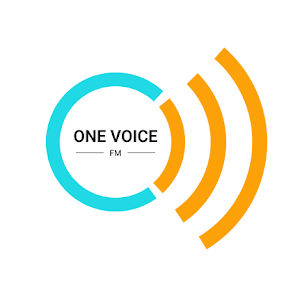She had her first contact with stage plays and acting when she was in secondary school. She skipped classes for rehearsals to perform on stage. She did all that to feed her passion in theatre arts but her mother’s suggestion of going for further training in a tertiary institution in line with her desire helped to open a career path where, today, she has impacted on generations of broadcasters in Nigeria.
Even though she considered quitting her job as a broadcaster at the Federal Radio Corporation of Nigeria when some of her friends started getting bigger offers in blue-chip companies, she stayed on. She is the head of the production department at the National Broadcast Academy (FRCN Training School, Ikeja), Lagos.
This is the story of Mrs. Uche Obaseki, wife of Dr. Don Pedro Obaseki. She took Daily Sundown memory lane in an interview recently in her Ikeja office.
How did your journey into broadcasting begin?
I got into radio broadcast in 2000 with a background in Theatre Arts. The only time I listened to the radio was on the FRCN belt and it was news. I was privileged to listen to a radio drama once and it was an interesting experience. However, I wasn’t trained when I got into the radio.
I had just one elective during my university days on radio drama and it was just on producing drama. That singular class exposed me to the unique use of sounds on the radio. So, in 2000, when I got to Radio Nigeria, I was hungry to learn, to listen more, and to play with sounds. I started off as a producer on Radio One, 103.5FM, and grew through the ranks.
What were your memorable moments as a young presenter in Radio Nigeria?
The unique thing about my program was that it started off pretty much from the first edition of the program. It was titled “The In-crowd.” After the first edition went on air, my general manager, Ms. Regina Anajemba, was so impressed that she penned down her thoughts and praises for me as a young producer on Radio One. She later gave me a commendation letter. I was surprised because the station was filled with veteran producers. So, to impress Ms. Regina Anajemba was a big achievement for me.
While the recommendation placed me in the good books, it also served as a check for me not to come short of my starting point. I challenged myself to get better in each edition. I kept that pace for years and each program I was given became the tool in my hands to set another goal and to do better.
Some of the programs I produced along the line were nominated for awards, like “Mandela Today,” nominated at the Nigeria Media Merit Awards (NMMA). In 2014, “The Law and You” won me, Producer of the Year 2014, at the Radio Nigeria awards. In 2017, I submitted “Muted Cries” for the NMMA and won the Programme of the Year. From then on, my path was set before me. I began to teach more of my colleagues at the workplace and I started attending more classes to improve on my skills.
You have published a book on radio production in Nigeria. Could you give us an insight into how you actualized that?
In 2016, I traveled to the United States on holiday, and, out of boredom, I started writing down my thoughts, experiences, and ideas on radio, and all I knew about program production.
At the end of my holiday, I had written a lot. I got back home and for two years I worked on it until I got enough money to publish it, but not without the help of my husband. In 2018, I published the first 1,000 copies of my book, titled “Radio Production in Nigeria: A Practitioner’s Guide.”
Meanwhile in 2017, after serving as manager, programs, on Radio One, I was moved to the National Broadcast Academy, which is the training arm of FRCN. So, I always say that God had planned my journey from the start. My publication comes in handy for students in the production department. However, the same book is used in the University of Lagos at the Mass Communication Department, where I have been invited to lecture as a guest lecturer.
Read Also: I Will Produce Netflix's Adaptation Of Wole Soyinka & Lola Shoneyin's Literary Works Mo Abudu Say's
While in school, I had my first contact with stage plays and acting. I skipped classes for rehearsals for stage performances and somehow became popular in school. That, I would say, impacted early on my life and made it easy for my mother to suggest going for further training in a tertiary institution.
I processed for tertiary education first at the University of Port Harcourt, Rivers State, for a certificate course in Theatre Arts in 1992, from where my love for acting was fine-tuned.
During that one-year training, I attended the NUTAF, which was a festival for all art students from different universities in the country, and it opened my eyes to the bigger picture. In 1993, Ola Rotimi also picked me among the actors to perform one of his plays “Hopes of the Living Dead,” at the National Theatre, Igamu, Lagos. That performance ran for two weeks and the reviews were awesome. Those two experiences assured me that I was on the right path, hence, I proceeded to pick up the forms to complete the degree course in Theatre Arts. After my service, I worked in two organizations before I got employed at the Federal Radio Corporation of Nigeria in 2000.
In higher institutions, female students are found more in Mass Communication departments but in practice, they usually fizzle out. What could be the reason behind this?
I don’t know where you got the data on the number of males versus the females but I know that in Radio Nigeria were I work, there are lots of women. From administration to finance and to core journalism and front-liners in media, women abound.
I actually fear that men are leaving journalism for the ladies. But, truthfully, journalism is a risky career. It comes with the practitioners putting their lives on the line. Yes, of course, the ladies are there but there are some aspects that they may shy away from because of the risk involved.
Despite the rapid transformation of the media industry, like the upgrade in facilities and channels of dissemination, content, and so on, most radio stations have been accused of broadcasting garbage (some people call it unreliable news). What is your take on this?
Upgrade, you say? That may be in private institutions, not the public ones. Some media houses work with tools that are obsolete and they cannot compete anywhere. People don’t trust the news in Nigeria not because of the equipment, anyway. It is in the treatment of news and news items daily. People are too lazy to work.
Some would know what to do with the news but are just downright lazy, while others who do the right thing are in stations that bother less about the treatment of news. So, it’s here and there. Copy from the Internet, deliver verbatim to the listener. When you hear a news item on one radio station, it is as if it is the same news editor that serves all the stations. It is sheer laziness, simple.
Despite lecturers’ efforts to inculcate the best knowledge in students, some employers complain that most graduates of mass communication, journalism, and broadcasting are not impressive in practice. Where did we get it wrong?
First of all, I would ask, how many mass communication graduates end up working in the media? Just a few. Employers seek something else, not the graduates. Some media organizations seek people who can speak English with foreign accents, not the ones that took out time to study the course.
Some other stations play more of ‘music and less talk.’ So, there is no place for knowledgeable people; but mass communication graduates who work in the media are different and are good at their work.
Where you ever discouraged at any point in your career that you considered quitting and what kept you going?
I was at a point discouraged to quit, especially when some of my friends started getting bigger offers in companies. I also wanted to leave the media but something kept telling me to stay and understand what I was doing. Again, I didn’t want to disappoint Prince Atilade Atoyebi, the man that offered me the job on the radio. So, I stayed. I traveled to states to get news, I was into entertainment too. I paid to attend late Amaka Igwe’s TV events. I interviewed celebrities then because they were not heard on the radio yet. My program, “Tape Rolling” was top notch. I loved my job, so I stayed. I gathered experience along the way and enjoyed what I was doing. That kept me going. I met people and it became easy for me and it kept me going.
The money was not flowing but I was fulfilled with each passing day. Some people didn’t stay, maybe because they couldn’t find fulfillment. And you can’t judge them. Someone must find fulfillment in what he or she does. I found mine and I still enjoy everything on the radio, except now I teach young people how best to do it on the radio.
Which other areas do you impact on humanity, apart from radio?
Another area that I love so much that I devote time to is caring for the physically challenged. I have been privileged to teach a couple of them and, most times, I am drawn to them.
So, in 2018, my sister Udoka Nwabuzor, and I started off a small company called Ripples of Love, where we buy wheelchairs and give to those who need them at random.
We gave out three wheelchairs towards the end of last year and those children have become my favorite sons today. That singular act of kindness attracted members of Project Enable to my office and I was privileged to be invited to one of their events that were sponsored by the United Nations and Google. Those are activities aside from my 9-to-5 job. I acted, too. I was featured on the Nigeria sitcom showing on DSTV, titled “The Johnsons.”
People have recommended your book to students of mass communication in higher institutions. Would you like to share some of your experiences in publishing with us?
Many people have recommended my book, especially because it is a practical book for practitioners. It is in use at the University of Lagos, International Institute of Journalism, Abuja, and the Federal University, Oye-Ekiti. It is also a reading tool for radio producers at the National Broadcast Academy, Lagos. So, having my book read by students is humbling. I intend to still improve on my craft as a writer.
source: The sun





Congratulation Obaseki keep soaring higher
ReplyDelete